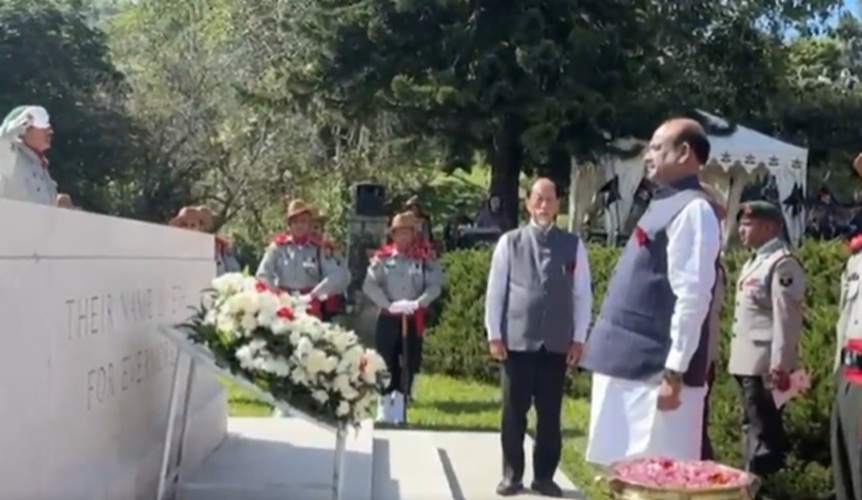Kohima: Lok Sabha Speaker Om Birla on Tuesday paid homage to the soldiers who fought and died in the Battle of Kohima during the Second World War, describing the Kohima War Cemetery as a “sacred ground of courage, sacrifice, and inspiration.”
Birla, who attended the second Remembrance Day of World War II organised by the Nagaland government at the Commonwealth War Graves Commission cemetery, said the day was one of “emotion and remembrance” as the nation honoured the heroes who made the ultimate sacrifice to defend their land.
Standing before the iconic Kohima epitaph — “When you go home, tell them that we gave our today for your tomorrow” — the Speaker said the words continue to inspire generations to dedicate themselves to building a better future.
“Our brave soldiers gave their today for our tomorrow. This day is not just about remembrance but also a source of inspiration,” he said.
Birla, in Nagaland to attend the 22nd Annual Commonwealth Parliamentary Association India Zone-III Conference, also thanked Chief Minister Neiphiu Rio for his government’s role in preserving the legacy of the war.
He noted that Rio’s father had participated in the conflict and lauded the efforts of the Rajya Sainik Board in supporting soldiers and veterans.
“India has always been a land of heroes and warriors. The legacy of sacrifice must continue to guide us toward peace and unity,” Birla said.
Rio, in his address, reflected on the contribution of Nagas during the war, noting that they extended help to both Allied and Japanese forces amid great hardship.
“Despite the suffering, the resilience and humanity of our people prevailed even in the darkest times,” he said.
ALSO READ: 75% voter turnout recorded in Mizoram’s Dampa bypoll by 3 pm
Rio emphasised that the annual commemoration serves as a reminder to uphold the values of peace, unity, and reconciliation.
“We must remember the lessons of war and work to preserve these memories for the younger generations,” he said, describing the Battle of Kohima — often called the ‘Stalingrad of the East’ — as one of the fiercest and most decisive turning points of World War II.
British Deputy High Commission’s Bhaarat Dave also attended the ceremony, calling the Battle of Kohima a “defining moment” in the war that safeguarded freedom across Asia.
He reaffirmed the enduring friendship between the United Kingdom and India, saying, “These words inscribed here are not just a tribute but a call to remember and uphold peace.”















